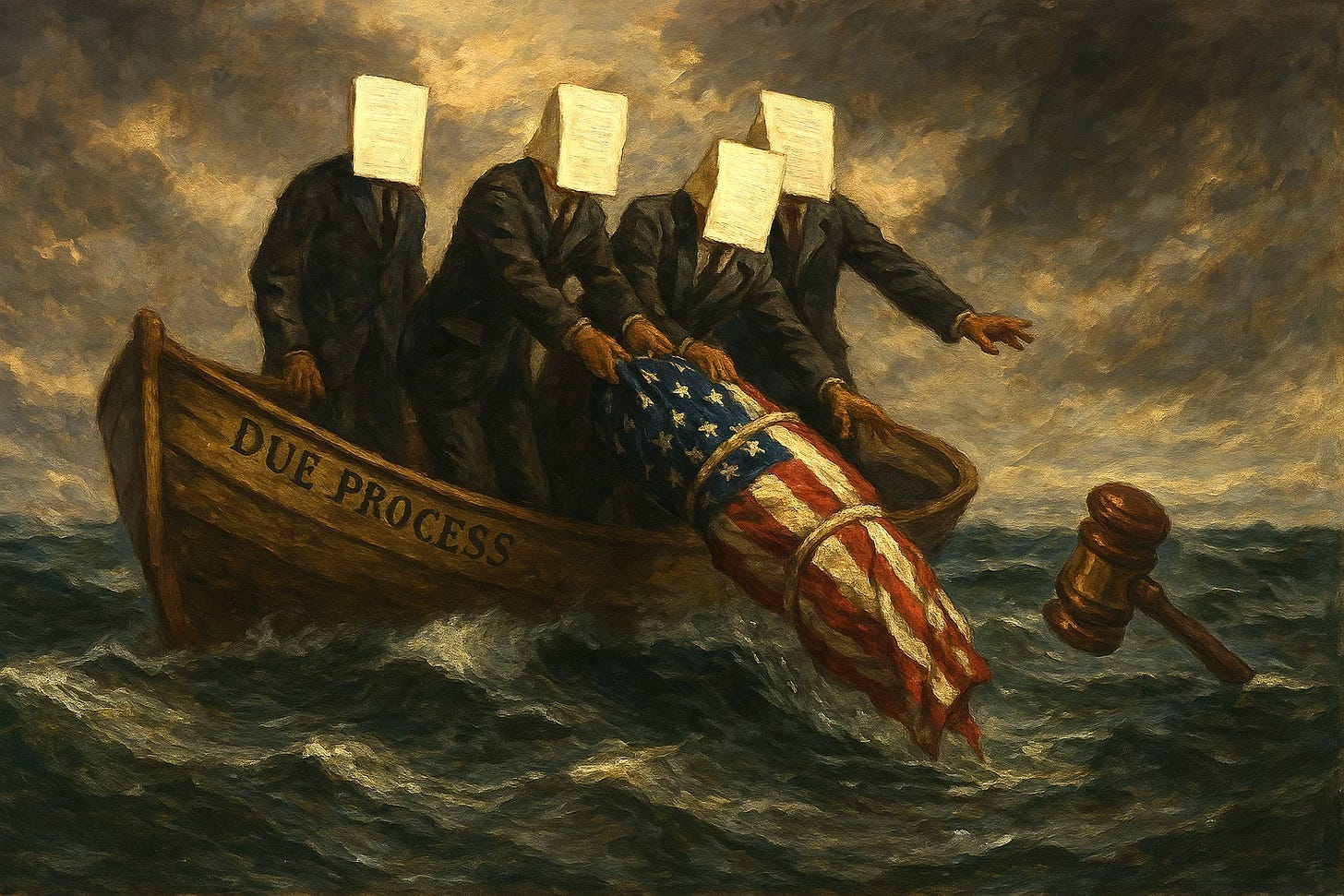Let it be stated with the clarity of a madman's final confession: the American Republic is presently governed by men who believe—sincerely, openly, and with the zeal of inquisitors—that it is not merely lawful but commendable for the federal government to abduct its own citizens (or any human within its grasp), deposit them like errant packages into the prisons of a foreign land, and wash its hands of the affair like Pontius Pilate with a law degree.
This, dear reader, is not some fevered hallucination scrawled in tinfoil ink by the lunatic fringe. It is the stated position—argued in daylight, with a straight face, before the Supreme Court of the United States—by the solicitor general of this land, one John Sauer, who has all the intellectual bearing of a county prosecutor and the constitutional fidelity of a hangman with cataracts.
Sauer’s claim—if one can call a legal rationale composed in a haze of authoritarian incense a "claim"—is this: that once the United States has succeeded in abducting an individual and depositing them in a foreign dungeon, the courts of this country are as powerless to retrieve them as a child is to unbreak a teacup hurled from a fifth-story window. In short, the act of extrajudicial deportation, even when committed in error, even when the victim is a legal resident or citizen, transforms the human subject into a kind of juridical ghost—unreachable by habeas corpus, untouched by due process, and entirely expendable. So long as the gulag bears a foreign flag, the Constitution ends at the dock.
What makes the legal blueprint offered by John Sauer and embraced—if not explicitly, then with the muffled cough of bureaucratic assent—by the Trump administration so abominable is not merely that it was written, or argued, or entered into the logbooks of the high court with the gravity of a man filing a zoning appeal. What is truly galling—what should set the nerves howling in every free citizen’s marrow—is that it arrived not to outrage or uproar, but to the wet, clicking silence of a nation whose capacity for horror has been gently anesthetized, one app notification at a time.
There is a grotesque luxury in believing that only the guilty need fear the knock at the door. It is the luxury of the comfortably irrelevant. It is the song of the well-fed collaborator who cannot imagine his name ever appearing on a list, because his spine is too limp to offend. But the truth is simpler, and older: the machinery of the state, once unshackled from principle, will grind anything placed before it—no matter how innocent, no matter how blonde, no matter how many “likes” their protest post received.
And here, at last, we must speak of the citizen.
Because the doctrine does not distinguish between the immigrant and the native-born. It cannot. Once you establish that due process ends at the water’s edge, and that removal itself nullifies legal rights, the category of “protected person” collapses.
This is not a future crisis. It is a present obscenity. It is not creeping. It is here. Not at the gates, but inside the courthouse, dressed in precedent and mumbling Latin. It has filed its paperwork. It has presented its theory. It has walked into the chambers of the Supreme Court and asked, with the confidence of a butcher holding a menu, whether the nation might consider abolishing the body of law altogether.
And if we fail to object—if we fail to rise—then it will come to pass.
Because evil, when spoken calmly and filed on time, has an eerie way of being mistaken for prudence.
So if you are reading this and you feel nothing—if you are nodding like a dead fish floating downriver, marveling at the cleverness of it all, the darkness, the flair—then I pity you. You are already lost.
But if you feel the burning—if your throat tightens, your teeth grind, your fingers curl as though reaching for something you cannot name—then you are still alive. And you are still dangerous. And you are still needed.
Because that is what the regime fears. Not a vote. Not a speech. Not even the courts.
But the citizen who wakes up one morning and says: No. I am not furniture. I am not paperwork. I am not a mistake you can mail to El Salvador and forget.
I am here.
I see you.
And I do not consent.
Copyright © 2025 by Paul Henry Smith














Share this post